Making Your Own Citrus Essential Oil From Scrap Fruit Peels
We decided to give up on artificial fragrances a few years back and have replaced them with Organic Essential Oils. Essential Oils have amazing benefits and also produce a wonderful scent allowing you to add a nice fragrance to items without using harmful chemicals. With that being said, high quality essential oils are not cheap, and sometimes when using them for fragrance only purposes…it felt a bit excessive. So recently while staring at a large pile of grapefruit peels our family had consumed…I had an idea, why not make our own?
In this post we are going to show you how we did just that, along with sharing some items you can use the homemade oils in. But before we do that, let’s first discuss how essential oils were traditionally made and how those processes change the quality of the final product.
Methods Of Extracting Essential Oils
There are many methods of extracting Essential Oils, some more popular than others. What many people don’t realize is that the process used has a significant effect on the quality of the Essential Oil. When making “therapeutic grade” Essential Oils, there are two key methods used widely among high quality producers. Some of these processes have been used for thousands of years. We are going to first discuss the two most popular methods used today to make the highest quality oils.
Two Key Methods
Steam Distillation – This method is the most commonly used among “therapeutic grade” oils and is the process of using a still and steam to extract the essential oils from the plant compounds and has been practiced since ancient times. The plant material in placed on a grid inside the still, the still is sealed and steam slowly breaks through the plant material to remove its volatile constituents. These constituents rise upward through a connecting pipe that leads them into a condenser. The condenser cools the rising vapor, turning it back into liquid form. The liquid is then collected and the essential oil is collected from the surface of the water. This process is the most sought after because the volatile components can be distilled at temperatures lower than the boil points of their individual constituents and are easily separated from the condensed water, resulting in higher quality oils. Also, the water by product produced by this process called “Hydrosols” still contain the water-soluble constituents of the aromatic plant and retain a small amount of essential oil. Hydrosols have many great uses and therefore there is not much waste in this process.
Expression (Cold Pressing) – When essential oils are taken from the rind of fruits, they are called “expressed oils”. This method does not involve heat or solvents of any kind. Originally this process was done by hand, the rind or zest of the citrus would be soaked in warm water, then a sponge would be used to press the rind, breaking the essential oil cavities and absorbing the essential oil. Once the sponge was full, it would be pressed over a collecting container and left open for the water to evaporate. Today this method is done by placing the rinds in a container with spikes inside, the device rotates and the spikes puncture the rind, releasing the essential oils. This process produces essential oils that smell exactly as the rind of the citrus fruit does. Cold pressed oils do have a shorter shelf life than those produced by steam distillation and should be stored properly.
Other methods include;
Enluerage Extraction – An ancient method of using animal fat to extract the volatile oils from flowers, such as Jasmine, and then using alcohol to remove said oils from the animal fat. This method is not used often today because of the expense, but it is technically considered an absolute.
Solvent Extraction - A method of extracting essential oils that is used widely in the perfume industry today. Using chemicals such as acetone, di-methylene-chloride, hexane and others to breakdown and absorb the essential oils, making a thick substance called “concrete”. The concrete substance is then mixed with alcohol which releases the oil particles from the substance. When the alcohol is removed the essential oils still contain chemicals from the solvent, and for this reason is not considered “therapeutic grade”, but rather “aromatherapy grade” oils. These are the oils that make up 98% of essential oils on the market, and are a very poor quality.
Percolation Extraction - Is a fairly new method being tested in France currently, it is similar to normal distillation except the equipment is upside down. The method sometimes results in emulsions that cannot be separated and therefore needs further development to be used on a large scale.
Carbon Dioxide Extraction – This method is relatively new as well and involves putting CO2 under pressure, turning it into a liquid, which can be used as a solvent to diffuse through the plant material which extracts its aromatic constituents. This process is expensive though and there is not much research into the resulting essential oil.
Now that we know some of the ways Essential Oils are produced, how do we make our own? Well, making or purchasing a still and steam distilling them yourself is a feasible option, and many individuals do so. While this is something we want to explore in the future, we don’t currently have the equipment to do so. So, we are going to go a bit rouge here…. We are going to use grain alcohol to extract the essential oils and then let that alcohol evaporate, leaving us with the volatile oils from the citrus rind. While I wouldn’t use this method with something fragile like Lavender…it works well for citrus fruits.
We will be using this oil in place of the high quality (and expensive) essential oils we are currently buying and using in things like homemade perfume, room and linen spray, homemade cleaners, beauty products anywhere else that would benefit from a beautiful citrus fragrance.
Now that we have that all out of the way, let’s making some oil!
Step One
This one is pretty straight forward, simply collect any citrus peels your family would normally discard, and remove as much of the white pulp as possible. Turning the rind inside out and using a knife to scrape the pulp worked very well for us. Then slice up the rind in thin strips and let dry, once you have collected a nice amount of dried peels you are set to go.
Step Two
Place dried peels into a glass jar and cover with a high proof grain alcohol. Place lids on jars and let them set in a cool dark place for one week, giving the jars a good shake once a day.
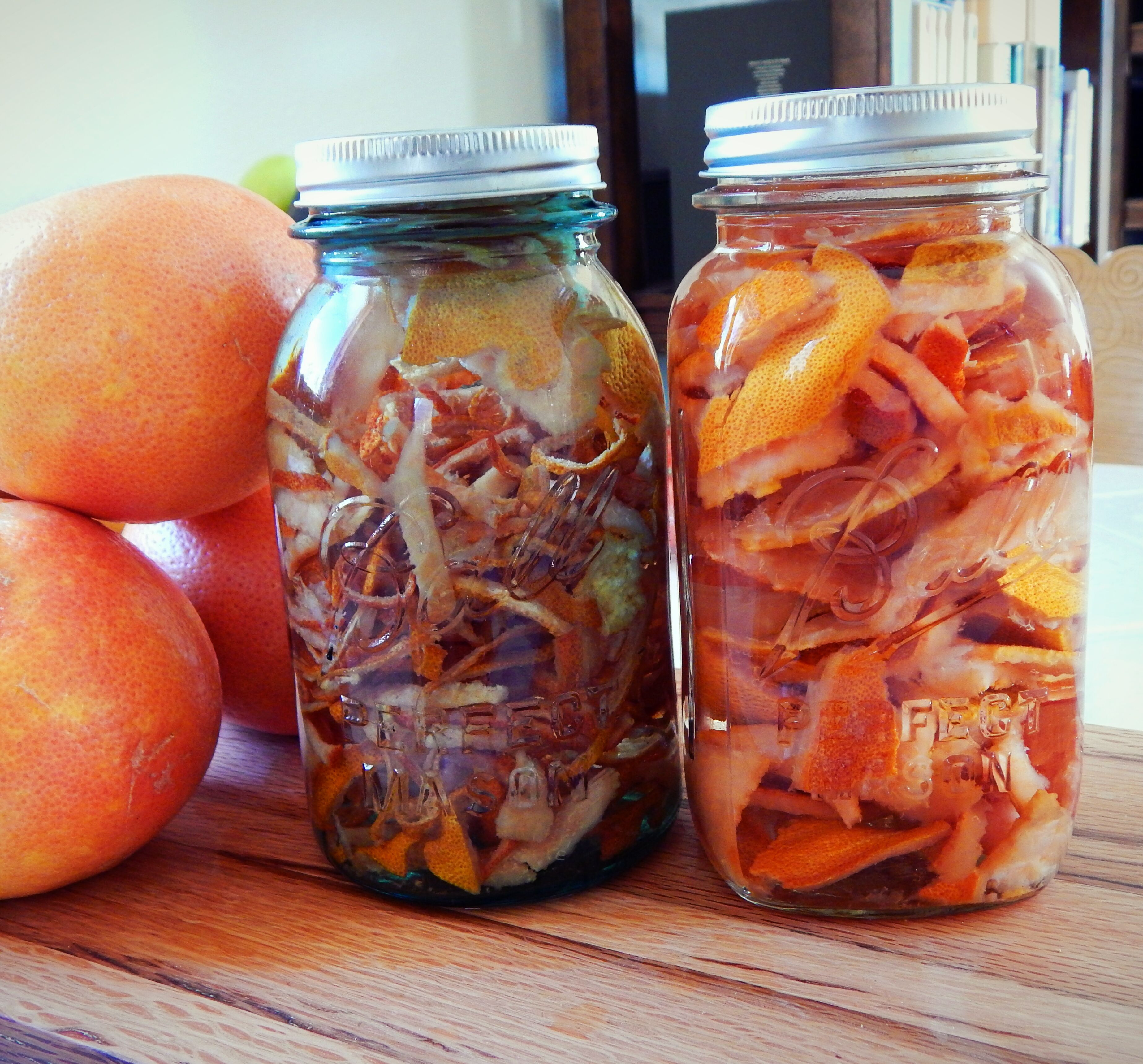
Step Three
At this point your alcohol should be thoroughly infused with the citrus oils.
We now need to strain the infused alcohol and squeeze any remaining liquid from the peels.
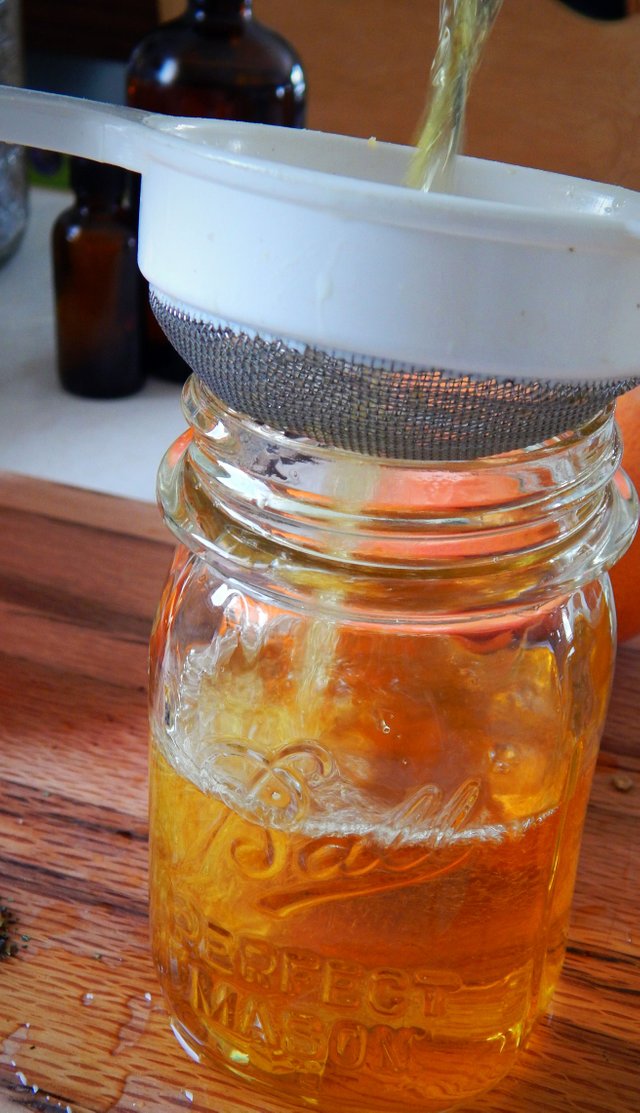
Now that your mixture is strained, you can make a cocktail..or simply move on to the next step. ☺
Step Four
We want to let the alcohol evaporate and to do so we want to place the opened jars in a warm, dry location for one week. After one week you should see quite a significant amount of evaporation, as seen here…
Step Five
Now that our Citrus Oil has had most of the alcohol and water content removed, we want to strain any remaining particles out. We did so by placing a small piece of cheese cloth (or gauze) over our strainer and pouring the oil over it.
You are now left with beautiful smelling citrus oil that can be used however you see fit. We have used this process with grapefruit, oranges and lemon peels and had amazing results.
The fact that we can use citrus peels that we would normally throw away and add some extremely cheap alcohol to replace an item that we were spending over $4.00 an ounce on (organic oil at bulk price) is exciting to say the least. Just another small step to becoming self sufficient…empowering, don’t you agree?
We hope that you have found this post helpful!
Thank you for reading,
Happy Homesteading!
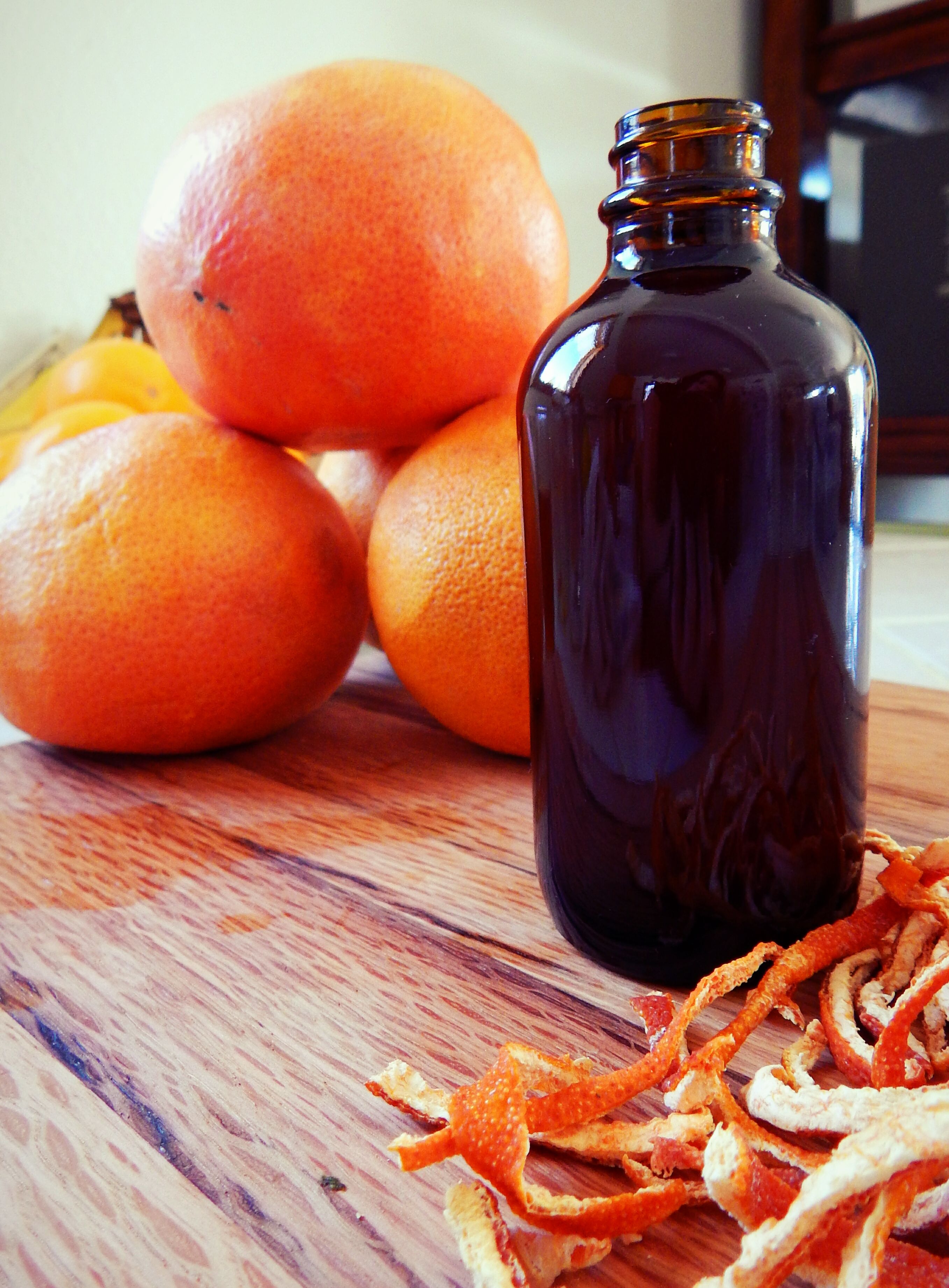
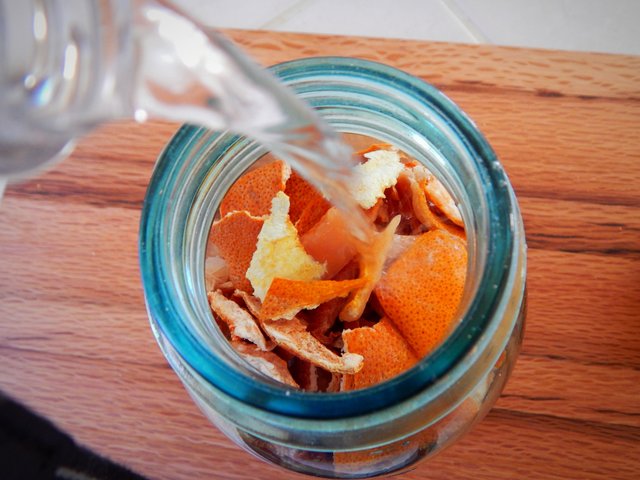
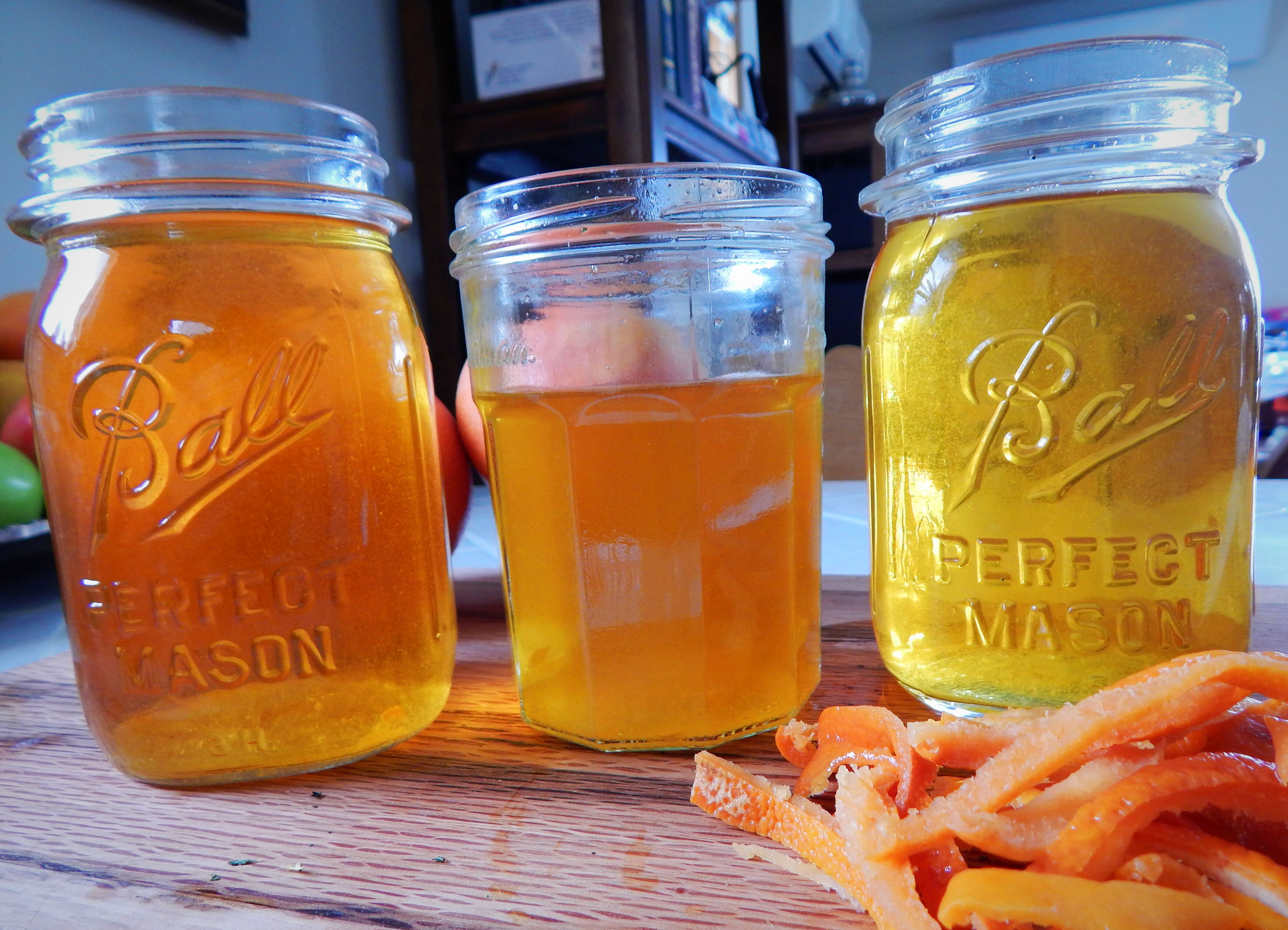
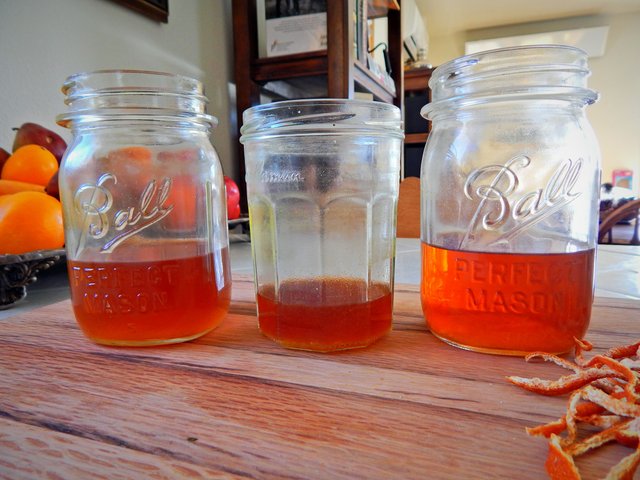
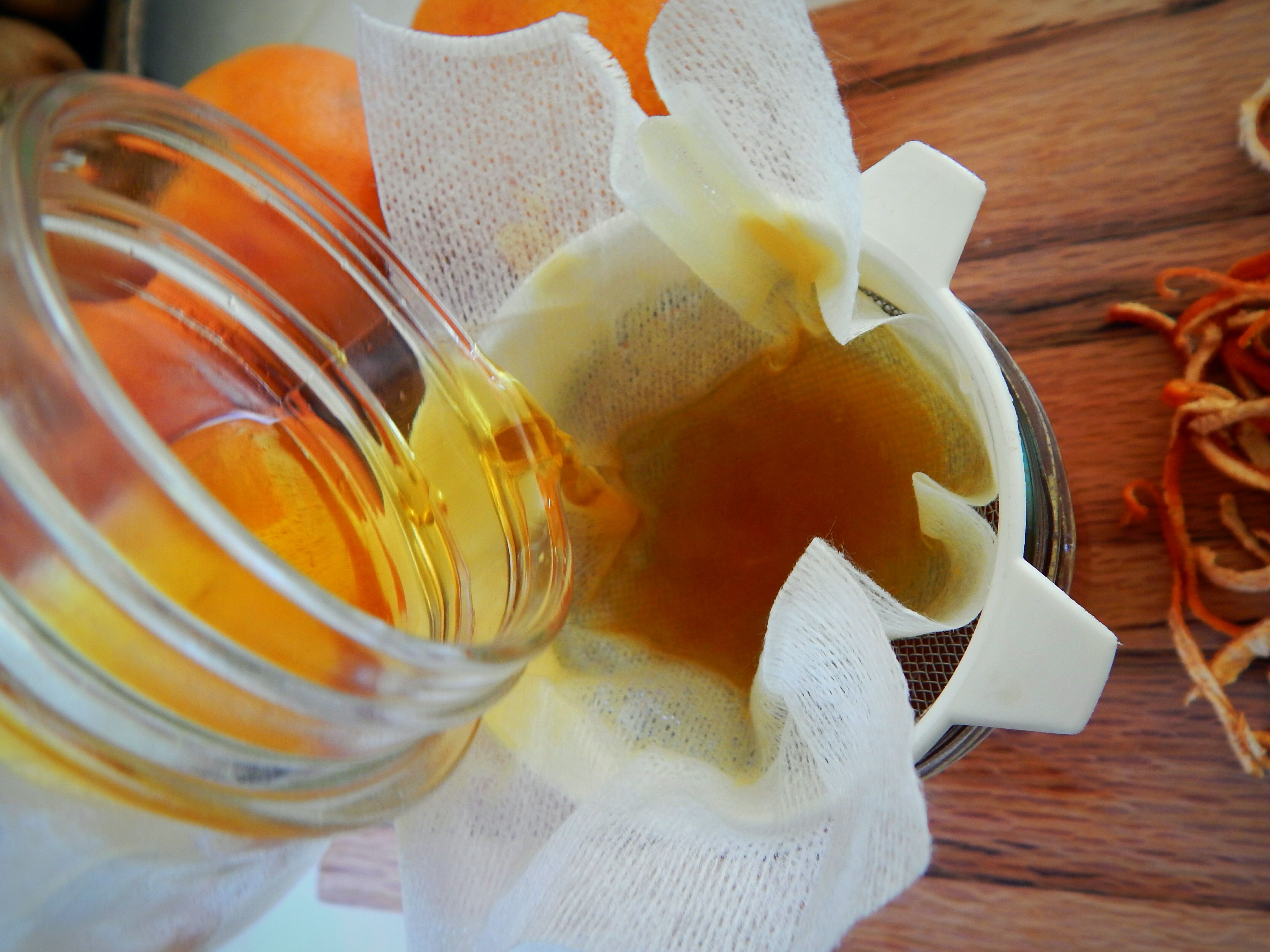
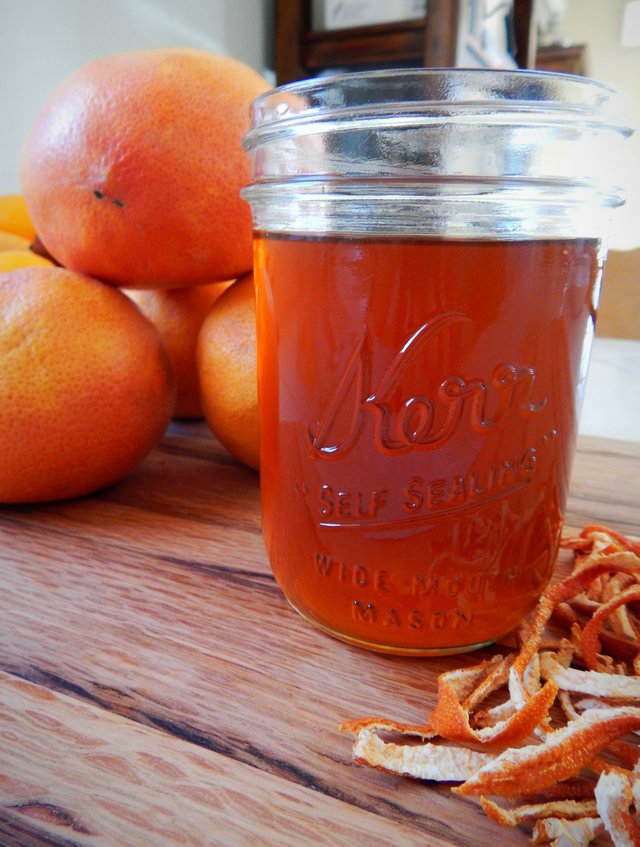
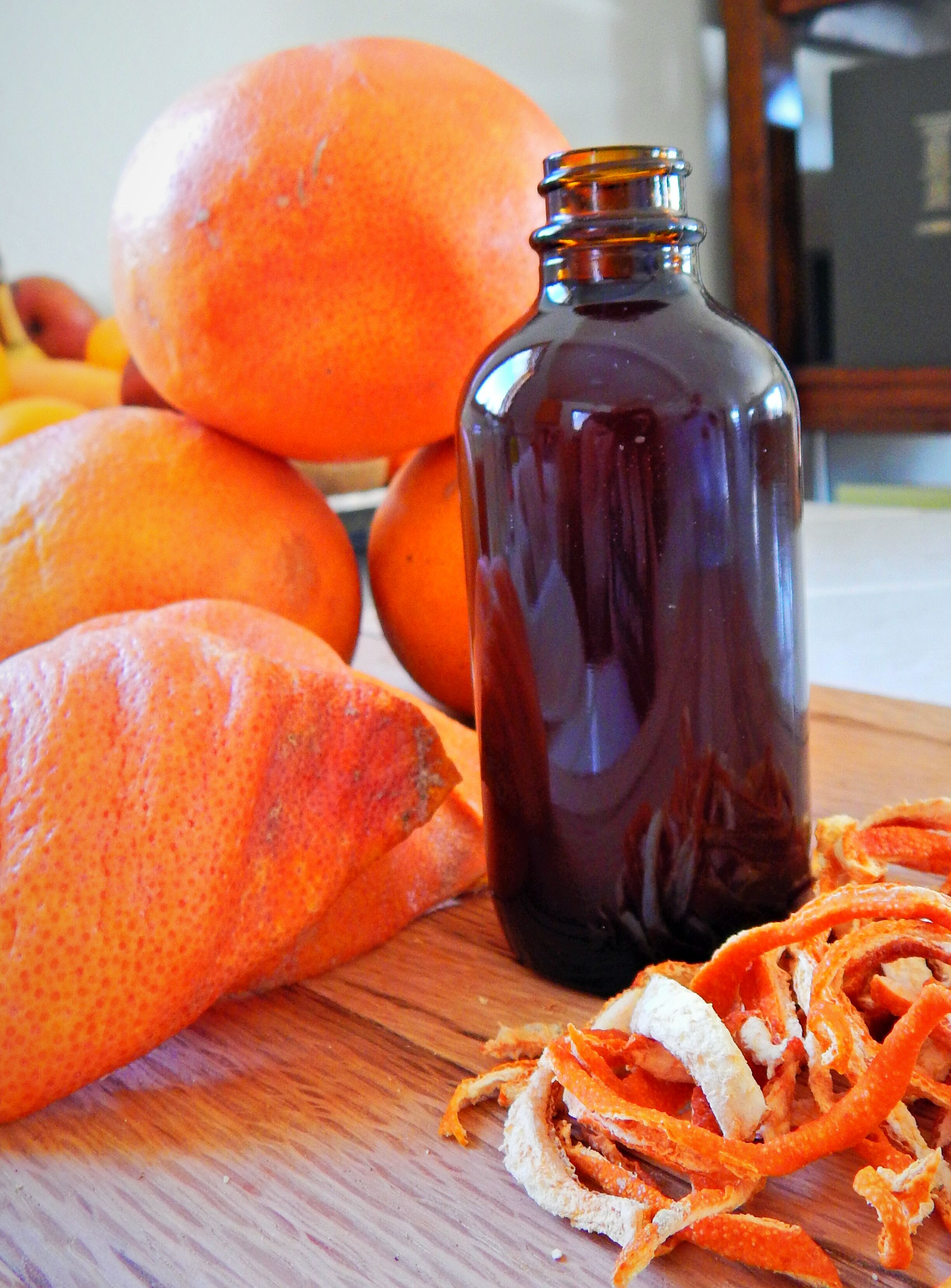
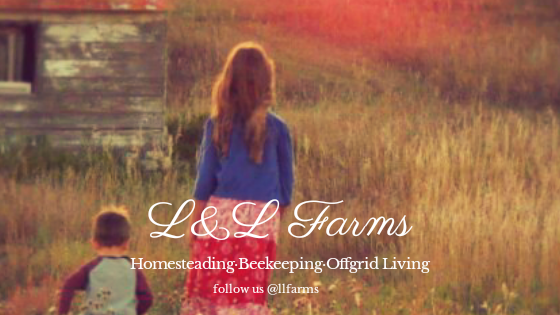
Absolutely wonderful!!!!! THESE are the articles that I most enjoy!!! and "make yourself a cocktail" hahaha
i definitely LCL at that one (LCL @freedomtowrite i told you.. we are making this one happen) hehehe
Fabulous and i think this is ANOTHER one of the articles of yours that I will be putting into my box of - "please don't just say you're gonna do this but really do it" things!
agh! with all of the poopoo flying these days on steemit... you are part of the reason why i still have hope in this platform!
and since my upvote (that i did give you!) is meager... please accept this small tip! to boost you just a bit more :)
I just stumbled on this fantastic post, and I see my name in the first comment! Ahhh! LCL! (which means Literally Chuckling Loudly for all whi would like to use it! Haha) Thanks @dreemsteem for using it! And this was a stellar comment!
I am laughing so hard!!!!!! I told you... We are making it happen;!!! LCLCLCL😂😂😂
Haha yes!
Best comment ever!! Thank you so so much!
I mean... when life gives you citrus infused vodka, it just seems wrong not to make a cocktail. Hahaha
Seriously though, your encouragment and extremely kind words mean so much to us.. Thank you so much ❤
hahaha agree! I know a few households in my family where you might get slapped for letting vodka just "evaporate!!!!! LCLCL
and you are so welcome! Love supporting and encouraging Steemians like you!!!
Love right back! :)
Now this is pretty cool 👍🏼👍🏼I’m saving this one for when my fruit trees produce. Thanks for this post😁 upvoted and Resteemed 😁😁
Thank you so much! You'll have to let me know how it goes!
Not sure if I missed this in the article, but are the Expression (Cold Pressing) oils consumable? for human consumption?
Most essential oils are not recommended for consumption...cold pressed are a bit different because they aren't quite as potent as those oils produced by steam distillation. So...the oil made in this post I would be comfortable consuming in small quanities. I hope that answers your question... Whether it is safe to consume essential oils is a heated topic and one that really needs its own post. Maybe one day I will be brave enough to post it! Haha. Thank you.
not that i know this for a fact... but I suspect that you can use lemon peels to make an oil that is ideal for maintenance of acoustic instruments, specially the porous woods that don't get varnish on them. Rosewood comes to mind of course, but there are many other oily species of lumber that also don't get varnish.
It would seem like it might even be safe to consume these, but I would not give it a go. Just saying!! hahahah
I would think so as well. I make a citrus infused olive/coconut oil that I use to clean and condition our cabinets...so I would assume the same mixture would work well for this.
I would feel comfortable consuming this in small quanities... it just depends on the oil in question haha.
I’ve always wondered if you could make your own oils at home. I figured you could but thought it would be a lot of work. This is very simple to replicate, not to mention most people have these things on hand already. Thanks for sharing!
Thank you so much! Citrus oils are probably one of the easiest to replicate and we have really enjoyed these oils! They smell so good..
Awesome post! I can't wait to try it. Lately made some candied orange peel for the first time and was so excited to find a use for something that would normally go straight to the chickens. I'm excited to try my hand at essential oils!
Thank you so much! Yum, candied orange peels are amazing! Isn't that feeling amazing? I love finding new ways to use things that would normally be discarded. Let me know when you give it a try!
Excellent tutorial!! Wow do they ever condense with the evaporation, that is really cool. You are right, oils are so expensive. Thank you so much for this post. I am definitley going to try this out, can't wait.
Thank you! They are...and I think they are worth it in most instances, but when I am really just looking for a chemical free scent (like in perfume) I love that I can use this instead at a fraction of the cost.
Amazing post @llfarms , I might actually try this. What fruits would you recommend to try this with? any personal favorite?
Thank you Pechi!! We have done grapefruit, orange and lemon...I love lemon for cleaning but grapefruit is probably my favorite. I have been exoerimenting with putting it in my homemade perfume and love it. This method will work with any citrus though.
:D I'll have to try one then! .. I'll try grapefruit as It's a perfect excuse to eat a few! haha
@dreemsteem wrote lately about: Pennsif'S Alternative Lifestyle Show: Logo Contest. Feel free to follow @dreemsteem if you like it :)
Tipuvote! - upvote any post with with 2.5 x profit :)
sorry... it's not supposed to put the latest post in there unless i tell it to... and i didn't. lol please ignore the rest and just enjoy the sbd :)
You're fine! I love pennsif's show.. Good luck on the logo contest! Thank you again ❤
thanks so much!
The extraction is a lot of patience. Is there a lot to clean up after? :)